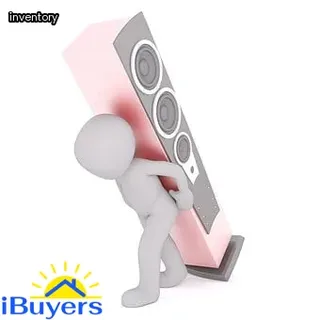When a person dies, the legal process of probate is often necessary in order to transfer property and assets to heirs. Probate can be an intimidating process, especially when it comes to deciding which items should be kept and which should be removed.
Before removing any items from a house that is going through probate, it is important to understand the process of transferring property and assets. There are numerous factors to consider such as whether or not the item has sentimental value or if it could be sold for profit.
It is also important to know who holds ownership rights and who will receive the proceeds of anysale. Additionally, you must ensure that all taxes have been paid on any asset before they can be transferred or sold.
Understanding how probate works and what needs to happen before transferring ownership will help make the process easier and more efficient.

When a person dies, their estate house needs to be managed and distributed in accordance with the terms of their will. Depending on the size and complexity of the estate house, this process can take months or even years to complete.
During probate, family members will typically remove items from the estate house in order to distribute them according to the deceased’s wishes. However, there are certain considerations that should be taken into account before any items are removed from the estate house.
For example, it is important to factor in any taxes or fees attached to specific items as well as any potential complications with appraisals and other legal matters. Additionally, all heirs must consider what will happen to remaining items that cannot be distributed among family members.
If these matters are not addressed properly during probate, there may be significant financial consequences for those involved in the process. When it comes to managing an estate house after death, careful consideration is paramount when removing items from the home.
When disposing of a deceased’s belongings, it is important to consider the best time to do so. In some cases, the executor or trustee of the estate may need to wait until probate has been completed before they can dispose of certain items.
During probate, different state laws may require that all assets be inventoried and valued in order to determine which items should be sold and how much money should be distributed among beneficiaries. Depending on the size of the estate, this process can take several months or even years to complete.
It is important for those involved in probate to understand their legal responsibilities and know when it is appropriate to remove items from a house. Knowing when it is best to dispose of a deceased’s belongings can help ensure that all beneficiaries receive their fair share and that any disputes among them are avoided.

Before deciding to remove items from a house during probate, it is important to consider all relevant factors in order to ensure that the process is legal and efficient. Depending on the state and circumstances of the estate, there may be specific laws governing what can and cannot be removed from the house.
It is wise to consult an attorney or other legal professional before making any decisions about which items should stay and which should go. If a will exists, it is important to review it thoroughly for instructions pertaining to the distribution of assets after death.
Additionally, if there are any surviving family members involved in the probate process, their wishes must be taken into account as well. Other factors that need to be considered are whether or not appraisals are necessary in order to determine fair value of certain items within the estate, who will pay for these appraisals, and how long it will take them to complete.
Finally, if any items need special care or attention prior to removal, such as antiques or collectibles, these must also be addressed.
When it comes to cleaning out a home before probate, there are certain items that should be exempt from removal. These can include family heirlooms, important documents, and other items with sentimental value.
It is important to take the time to consider any objects that could have personal or financial importance before making any decisions about what to keep and discard during this process. After all, most probate laws require an inventory of the estate’s assets and liabilities, so it’s important to account for all of these items.
Additionally, many family members may feel attached to particular items in the home and it is important to respect their feelings as much as possible. Before removing any belongings from a house during probate, it is essential to think carefully about which items should stay in order to ensure everything is accounted for properly.

When transferring property after death, it is important to be aware of the laws and regulations governing probate. This process can be complex, so it is essential to take all necessary steps and precautions when removing items from a house during probate.
There are several factors to consider before taking any action, such as understanding the value of the property, preparing an inventory of all assets, ensuring that all creditors have been paid off, and determining whether or not there will be tax implications. Additionally, it is important to know how the decedent's will was written in order to determine who has authority over the estate and how assets should be distributed.
Lastly, if there are multiple beneficiaries involved in the transfer of property after death, it is crucial to ensure that everyone agrees on how the assets should be divided. All these considerations must be taken into account when considering removing items from a house during probate in order to ensure that the process goes smoothly and without any legal issues or ambiguities.
When dealing with probate, it is important to consider the potential outcomes for a house or property that is left behind in a will. Probate is the legal process of administering an estate after someone has passed away and includes assessing and distributing the assets of the deceased.
During probate, a personal representative or executor will inventory all assets and liabilities of the deceased. As part of this process, they may need to remove items from the house in order to determine their value and distribute them according to the will.
After probate is complete, remaining items within the home can be distributed to heirs based on what is outlined in the will. The executor must also take into account any taxes or debts owed by the deceased when disposing of assets; they may need to sell property or other items to cover these costs before distributing any remaining inheritance.
Furthermore, if there are no heirs specified in the will, then all assets must be sold off and any proceeds given to charity or deposited into state funds. It is essential that all steps in this process are taken carefully as mistakes can lead to costly delays and disputes between family members.

When going through the process of probate and selling a home, it is important to consider what items should remain in the property and which should be removed. It can be easy to overlook some of the potential pitfalls that could arise from removing too many items from a house during probate.
Although it may seem like a good idea to take as much out of the house as possible, this can actually lead to delays in the sale process and create further hassle for everyone involved. To ensure that a home is sold quickly with minimal disruption, it is essential to take into account any legal regulations or restrictions that may apply in your state or locality, as well as any special restrictions imposed on probate sales.
Furthermore, keep in mind how certain items will affect the value of the property - while it may be tempting to take out furniture or other valuables that could fetch a high price at auction, this could limit buyers’ willingness to purchase the home due to its reduced size or lack of amenities. Finally, you should consider whether there are any sentimental items worth keeping in the home; although these do not typically affect its sale price directly, they can help create an emotional connection between buyers and sellers which may make all parties more likely to agree on a successful transaction.
When it comes to cleaning out a home after the death of a loved one, it is important to remember that probate must be observed. This means that any items removed from the home must be carefully considered and documented.
It is important to understand the local probate laws in order to know what items are legally allowed to be taken from the property. Typically, personal belongings and other items belonging solely to the deceased are not subject to probate, but valuable assets such as jewelry, furniture, artwork, and antiques may need to be inventoried and appraised before they can be distributed according to the will of the deceased.
When it comes time for removal of these items from a house during probate, it is important to have an experienced professional on hand who is knowledgeable about all aspects of estate law. The removal process should also involve proper documentation and labeling so that any disputes can be avoided in the future.
Lastly, taking photos or videos of all items prior to their removal can help ensure that everything is accounted for properly when it comes time for distribution according to the deceased's will.

When handling a house in probate, it is important to understand what not to do. Before removing any items from the property, it is important to determine who owns the items.
Depending on the terms of the will, some items may belong to certain heirs and should not be removed without their permission. Additionally, it is important not to take any actions that could damage or destroy the estate's assets.
All changes made should be discussed with all involved parties before any decisions are made in order to avoid potential conflicts down the line. Furthermore, it is essential that all applicable laws and regulations are followed when handling probate matters so as to avoid legal issues.
Finally, if there are any disputes between family members regarding how the property should be handled, it is best to seek professional guidance and legal advice on how best to proceed.
When a house is being distributed during probate, there may be the need to remove certain items from the home in order to make it ready for sale or transfer. Before making any decisions on what to remove, there are a few things that should be taken into consideration.
First, the executor of the estate should review all of the documents associated with the will. This will help them identify any specific wishes that were outlined by the deceased and ensure that they are followed as closely as possible.
It is also important to consider whether certain items could have sentimental value to family members or beneficiaries and how their removal could affect their emotions. Additionally, if certain items cannot be removed due to legal reasons or restrictions, it is important to take these into account when deciding which items should stay and which should go.
Finally, personal preferences can play an important role when considering removals and it is important to remember that any actions taken should align with what would have been desired by the deceased.

When it comes to a house during probate, there are certain considerations that should be taken into account before any items are removed. One of the primary considerations is the conveyance of property rights; this includes who has the right to sell or keep the property in question.
In cases where there is a surviving spouse, they may have first right to the property, but if there isn’t one, then the decision will typically fall to the executor or administrator of the estate. Furthermore, such decisions may also need court approval if there is any dispute as to who should take ownership of an item.
If it is decided that a home sale is necessary, then all parties involved should review and understand their legal rights and obligations associated with selling a home during probate. It’s also important to remember that in most cases, the executor will be held responsible for any debts or taxes that arise from selling a home during probate and must ensure that these are paid before any assets can be distributed among heirs.
The probate process is a legal process that is involved when someone passes away and their assets are transferred to the next of kin or other designated beneficiary. It can be a complex and lengthy process that requires attention to detail, organization, and understanding of the law.
Before any items can be removed from the house during probate, there are a few things that need to be taken into account. First, it's important to understand what type of property is considered part of the estate.
Generally this includes real estate, personal property such as furniture and vehicles, financial accounts, investments, and other possessions. Additionally, if there are debts associated with the estate they must be taken into consideration before anything can be removed or sold.
Next is determining who has authority to make decisions regarding the estate; typically this is the executor or administrator of the estate (if appointed by court) but it may also involve other family members depending on state laws. Lastly it's important to understand that any steps taken in regards to the estate should have court approval prior to being carried out.
While it's not always required for small estates with minimal value, it's highly recommended in order protect all parties involved as well as comply with state regulations.

When a loved one passes away, it is important to consider the legal process of probate before removing any items from the house. Probate is a court-supervised process that involves the collection, management and distribution of an individual's assets after they have passed away.
During this process, it must be determined whether or not the deceased person had a valid Will and if so, who should receive their assets. This process helps ensure that all debts are paid and any remaining assets are distributed fairly.
It is essential to go through the probate process when someone dies because it allows for an orderly transfer of property and other assets to prevent disputes between family members or creditors. Furthermore, it also prevents potential fraud or abuse in the administration of a deceased individual's estate.
When going through the probate process, it is important to consider what items should be kept and which should be removed. Cleaning a house after the probate process can be an overwhelming task, but there are some tips that can make this job easier.
Before removing any items, it is important to research the value of each item and determine if they are worth selling or donating. Additionally, it is beneficial to create a checklist of what needs to be done and prioritize tasks based on importance.
To ensure that no valuables end up being thrown away accidentally during the cleaning process, take pictures of each room before you start. Furthermore, consider hiring an experienced professional cleaner or organizing company for help with the post-probate cleaning.
Finally, try to keep sentimental items that have been passed down from family members as these may have more value than their monetary worth. Taking the time to consider all these tips will make cleaning a house after probate much smoother and less stressful in the long run.
Before probate is granted, it is important to carefully consider the items that will be removed from the house. First and foremost, family members should consult with a qualified attorney who specializes in probate law.
This ensures that all parties involved are aware of the legal requirements and restrictions associated with removing items during probate. Additionally, it is important to create an inventory of all items being removed and keep detailed records of who took possession of them.
In addition to this, any appraisals or valuations of the items should be obtained for tax purposes. Furthermore, estate taxes should also be taken into account when deciding which items to remove from the house during probate.
Finally, it is essential to ensure that all parties involved agree on which items will be distributed and comply with any final wishes specified by the deceased person before removal takes place.

When dealing with the probate process for a deceased individual, it is important to consider what assets are not included in the estate. Generally speaking, items such as retirement accounts, life insurance policies and other assets that have named beneficiaries are not part of the estate.
In addition, any assets that have been transferred out of the name of the deceased person into joint ownership or a trust also would not be part of the estate. Furthermore, items such as pensions, annuities and/or Social Security benefits may also be excluded from an estate depending on how they were set up prior to death.
It is essential to understand what assets should and should not be included in an estate before removing any items from a house during probate.
When it comes to removing items from a house during probate, there are several factors that should be taken into account when determining what contents are valued for probate. This includes sentimental value, market value, and the potential for future appreciation of the item.
Sentimental value can be difficult to quantify, but can be very important in some cases. Items of market value such as antiques and collectibles should also be taken into consideration when looking at what to remove from a house during probate proceedings.
Additionally, items with potential for future appreciation in value should also be considered before they are removed from the home. Taking these factors into account can help ensure that all valuable items are preserved appropriately during probate proceedings.
One of the most common ways to avoid probate of property is through a living trust. A living trust is a legal arrangement that allows property or assets to pass directly from the grantor (the person who created the trust) to the beneficiary (the person who benefits from the trust).
It allows for an easier, faster transfer of assets than going through probate court. When creating a living trust, it is important to consider which items are best suited for being placed in the trust and which items should be left out.
Before removing any items from a house during probate, it is important to consult with an experienced attorney as well as other family members or beneficiaries involved in order to ensure all legal requirements are met and that any potential tax liabilities are minimized.